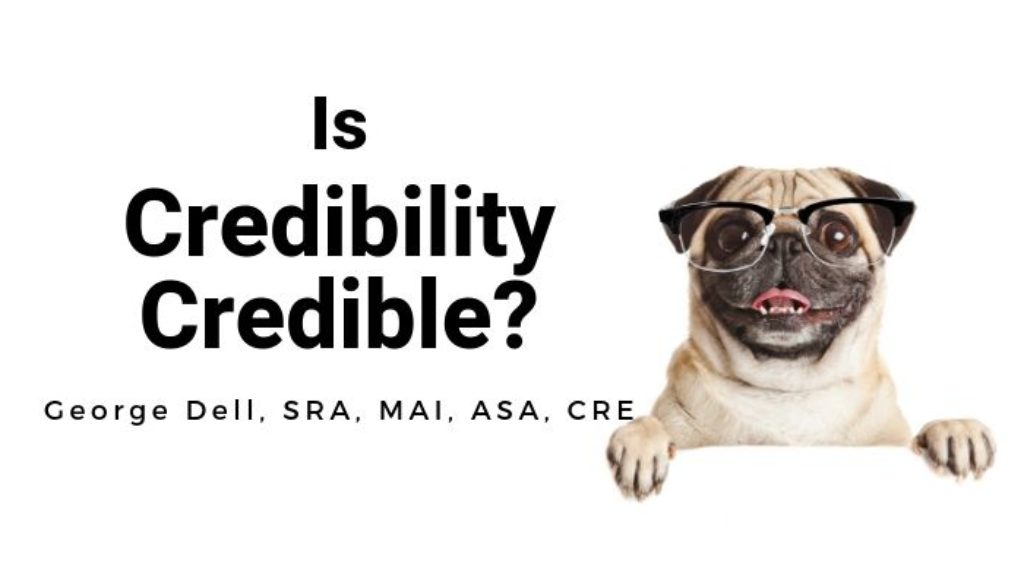Credible— USPAP (Uniform Standards of Professional Appraisal Practice) says an appraisal must be credible. The word ‘credible’ is used some 82 times in the Standards themselves (although used repetitively in the same context using identical words most of those times). Then an additional some 103 times in the Advisory Opinions, mostly re-quoting the first 82 times.
Credible must be important! What does it mean?
Well, the USPAP Definitions say it means “worthy of belief.” We need to figure this out. So, let’s dig deeper. What is worthy? And what is belief? Well these words are not defined in USPAP, so we are instructed to use the regular dictionary meanings.
Worthy: Thesaurus:
- Well-intentioned: Well-meaning, Earnest, Pedestrian, Dull, Routine
- Commendable: Praiseworthy, Laudable, Admirable, Precious, Creditable, Worthwhile
Definition: having adequate or great merit, character, or value; of commendable excellence or merit; deserving.
I am glad no one ever told me my work was ‘precious’ or pedestrian! So, what I get out of this is: be good, be nice, be sincere, and don’t rock the boat.
Belief: Thesaurus:
- Confidence: Trust, Certainty, Credence, Acceptance
- Faith: Conviction, Principle, Creed, Idea
Definition: something believed; an opinion or conviction; confidence in the truth or existence of something not immediately susceptible to rigorous proof; confidence; faith; trust. a religious tenet or tenets; religious creed or faith.
So, to be a good appraiser means have an opinion which is can be judged worthy and believable.
This is what appraisers are admonished to deliver. An opinion. But do what your peers’ actions would be. And, of course, comply with your clients’ expectations. (As USPAP requires.)
So— credibility is what an appraiser must do. But what do clients need?
I mean what do clients really, actually need? I do not mean what clients expect! What clients expect is an opinion, reviewable for believability, that meets certain checklist requirements.
What do clients actually need? Some clients need to measure their risk of loss—like collateral lenders. Some other clients need to know how they may enjoy profit in the future– like investors. Still others may need fairness or truth— like taxing assessors or government takings, or the judicial system.
In each case, what is really important is risk or reliability. What is the risk of loss, potential for gain, or sureness of fairness. Not a point value opinion of price, two weeks ago, with no effort at forecast of risk, reliability, fundamental (sustainable) value, nor any ability for ongoing revaluation or updates.
It appears that what the world needs is quite different— from what appraisers are trained, admonished, regulated, and habituated to deliver. No wonder we have problems.
Believe me.

